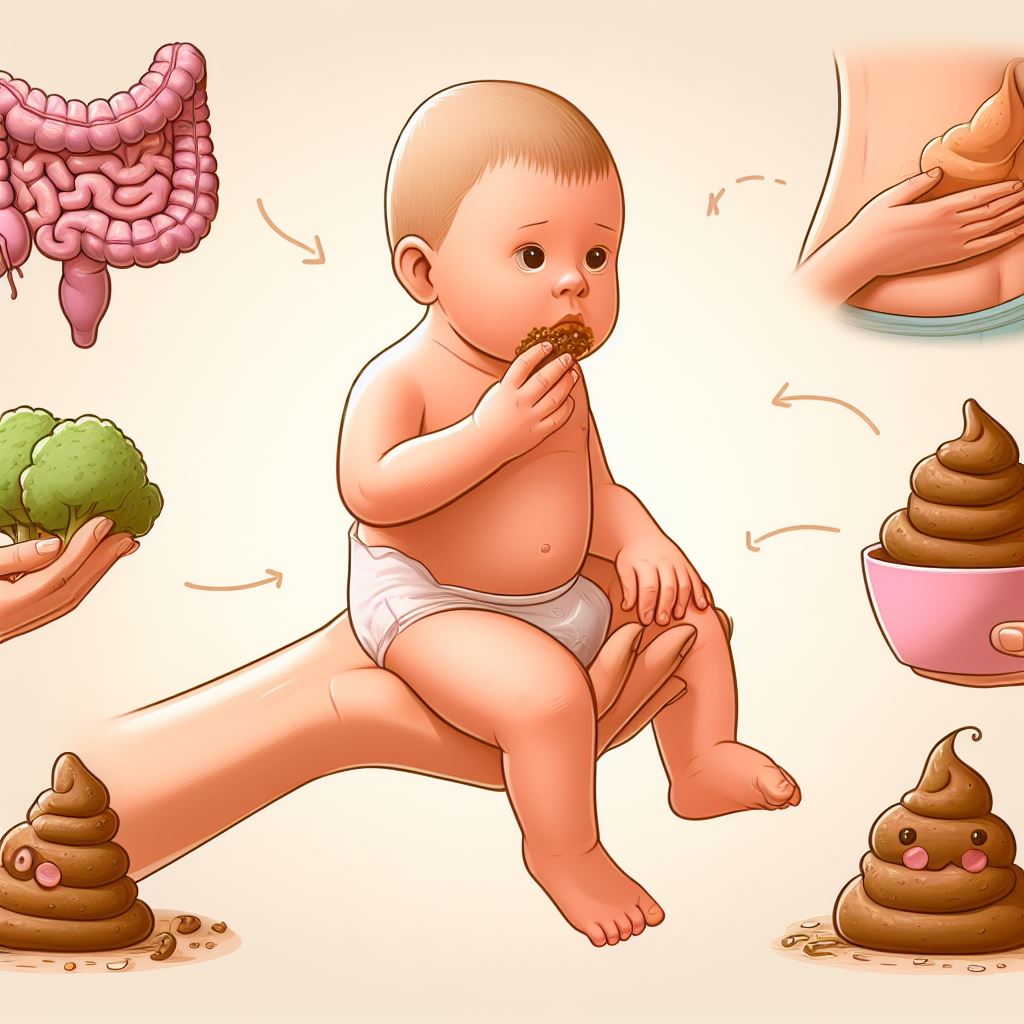Noticing your poop smells like burnt hair can be alarming and unpleasant. This overpowering odor is not typical for healthy stool. When bowel movements start smelling like charred keratin, it often signals an underlying problem needing attention. This guide covers the key causes, ways to find relief, and how to know if an evaluation is needed.
What Does Burnt Hair Smelling Poop Mean?
Stool normally has a mild, inoffensive odor related to your diet. Poop smelling like burnt hair, chemicals, or smoke is usually a red flag for:
- Bacterial imbalance in the gut releases sulfur gases that smell burnt.
- Malabsorption conditions like celiac disease lead to foul waste odors.
- Bacterial infections generate extremely smelly diarrhea resembling burnt hair.
- Inflammatory issues like IBD create sulfuric stool smells.
- Food sensitivities like lactose intolerance may cause poop smells when specific foods are eaten.
Don’t ignore persistently smelly bowel movements resembling burnt hair or tires. This symptom warrants having a doctor evaluate your overall gastrointestinal health.
Health Problems Linked to Burnt Hair Smelling Poop
Several underlying issues may explain stool odor like burnt keratin fumes or rubber:
- Celiac disease – Damage to the small intestine from gluten leads to poor nutrient absorption and foul poop smells.
- Crohn’s disease – This inflammatory bowel disease generates extremely stinky diarrhea and poop odor.
- Ulcerative colitis – Chronic intestinal inflammation produces bloody, smelly stool with a sulfuric odor.
- Small intestinal bacterial overgrowth (SIBO) – Excess bacteria in the gut ferment food and release sulfur gas smells.
- Gastroenteritis – Stomach bugs cause diarrhea with a very burnt, rancid odor resembling burnt hair.
- Food intolerances – Trouble digesting foods like lactose or fructose allows gut flora to ferment them and release smelly gases.
- Parasitic infections – Parasites can infest the digestive tract and create horrifically smelly stools.
Testing can diagnose these and other possible gastrointestinal conditions that may cause your poop to smell like burnt hair.
When to See a Doctor About Burnt Hair Smelling Stool
You should make an appointment with your doctor or gastroenterologist if you have:
- Stool that persistently smells like chemicals, burnt hair, or smoke
- Changes in bowel movements, such as bloody diarrhea, greasy poop, or dark tarry stools
- Unexplained weight loss, diminished appetite, or fatigue
- Fever, abdominal pain, nausea, vomiting over 24 hours
- Recent antibiotic use associated with diarrhea
- Travel to a developing country where you may have gotten a parasite
Don’t try masking burnt poop odors with over-the-counter products alone. It’s important to seek medical guidance to determine any underlying cause needing treatment.
What Makes Poop Smell Like Burnt Hair?
Along with health disorders, these factors can also contribute to poop odor resembling burnt hair:
- Dehydration – Not getting enough fluids leads to very concentrated, smelly bowel movements with a potent burnt odor.
- Diet – Foods high in protein, fat, or sulfur compounds like meats, dairy, garlic, and cruciferous vegetables may create burnt poop smells when digested.
- Medications – Antibiotics, cholesterol drugs, and some supplements can influence stool odor.
- Smoking – Tobacco smoke exposure and chemicals get excreted in poop.
Pay attention if the burnt hair odor persists after addressing hydration, diet, and medications. Seek medical guidance to pinpoint causes.
Finding Relief from Burnt Hair-Smelling Poop
In addition to consulting a doctor, try these home remedies to improve foul poop odors:
- Drink more water and fluids like broth, juices, and herbal tea to stay hydrated.
- Eat more high-fiber foods such as fruits, vegetables, beans, lentils, and whole grains to improve stool bulk.
- Limit dairy, fried foods, fats, and artificial sweeteners that may cause indigestion and smelly poop.
- Take probiotics to balance out intestinal bacteria populations linked to sulfur smells.
- Exercise regularly to stimulate the gastrointestinal tract and motility to move smelly waste along.
- Destress through yoga, meditation, and counseling which can improve gut health.
- Consider activated charcoal supplements to absorb smelly sulfur gases.
Paying attention to the poop smell provides insight into your overall gastrointestinal health. Don’t ignore persistent changes in stool odor. Getting to the root cause via medical care, diet, and lifestyle remedies can help resolve unpleasant poop odors.
Why Your Baby’s Poop May Smell Like Burnt Hair
It’s common for a baby’s poop to have new or unfamiliar smells as their diet changes. Formula-fed babies’ stool often smells sweet or burnt due to the lactose sugars. But if your baby’s poop starts smelling like actual chemicals or burnt hair, it could indicate:
- Food sensitivity– Trouble digesting proteins or sugars in formula, breastmilk, or solids may cause odd poop smells.
- Transitioning gut flora– Their developing gut biome adapts to digest complex carbs, proteins, and fats.
- Illness– Teething, viruses, antibiotics, or parasites may temporarily alter stool smell.
Discuss any concerning poop smells with your pediatrician. Monitor if the burnt odor persists or accompanies fever, blood or mucus. Switching formulas or mom’s diet may help identify the cause.
Why Your Pee Smells Burnt
Urine often mirrors the scent of foods eaten, like asparagus. But if your urine consistently smells like chemicals or burnt hair, it may indicate:
- Dehydration – Concentrated urine can have a strong, weird odor resembling burnt rubber or hair. Drink more non-caffeinated fluids.
- Urinary tract infection (UTI)– Bacteria in urine can create a foul, burnt aroma. Seek treatment for the UTI.
- Medications – Some drugs like antibiotics, chemotherapy, or hormonal therapies may influence urine odor.
- Kidney disease– An inability to filter waste properly can lead to strange urine smells.
See your doctor if your pee keeps smelling strongly burnt or odd. Treating any underlying cause often resolves the urine odor.
The Takeaway
Stool smelling like burnt hair shouldn’t be dismissed – it often reflects an underlying problem needing medical attention. Causes may range from infection and gut flora imbalance to food intolerances. See your doctor for evaluation. Focus on proper hydration, diet changes, probiotics and exercise. Listen to your body – alarming poop odors signify disturbances in your overall digestive health. With the right medical guidance, you can get to the bottom of this smelly symptom and find relief.
Here are some additional tips to help manage poop smelling like burnt hair:
- Keep a food diary to track what you eat and how it affects stool odor. This can identify foods possibly causing burnt smells like sulfur-containing foods.
- Drink plenty of fluids to stay hydrated. Proper hydration helps keep poop soft, easier to pass, and less smelly.
- Eat a healthy, high-fiber diet. Fiber bulks up stool makes it easier to pass, and can reduce unpleasant burnt odors.
- Take probiotics to improve gut health and reduce smelly sulfur gas production in the intestines.
- See a doctor if concerned about persistent burnt hair poop smells, which may indicate an underlying health issue needs attention. Your doctor can help diagnose and treat any causes.
FAQs
Q1: Why does my poop smell like burnt hair or sulfur?
A1: Poop smelling like burnt hair or sulfur can be caused by gut bacteria imbalance, intestinal infections, inflammatory bowel issues, or sulfur-containing foods passing through the digestive system undigested. It may be a sign of an underlying health condition needing attention.
Q2: Is it normal for a baby’s poop to smell like burnt popcorn?
A2: A mild sweet or burnt popcorn smell is common in newborns and breastfed babies. But a truly burnt odor could indicate an intestinal infection, transitioning gut flora, or food sensitivity. Check with your pediatrician if concerned.
Q3: How can I make my stool stop smelling like burnt matches?
A3: Try drinking more fluids for hydration, eating high-fiber foods, taking probiotics, exercising regularly, reducing stress, and limiting the intake of high protein, fat or sulfur-containing foods. See your doctor to rule out gastrointestinal issues.
Q4: Why does my poop smell burnt after taking antibiotics?
A4: Antibiotics can kill off good bacteria in the intestine, allowing “bad” bacteria to overgrow and release more sulfur gases, making poop smell burnt. Take probiotics to restore gut flora balance.
Q5: Could burnt rubber-smelling poop be a sign of gastrointestinal bleeding?
A5: Yes, stool that smells like burnt rubber or tires should not be ignored, as it may indicate bleeding in the upper GI tract. See your doctor for evaluation, especially if you have symptoms like fatigue or abdominal pain.




